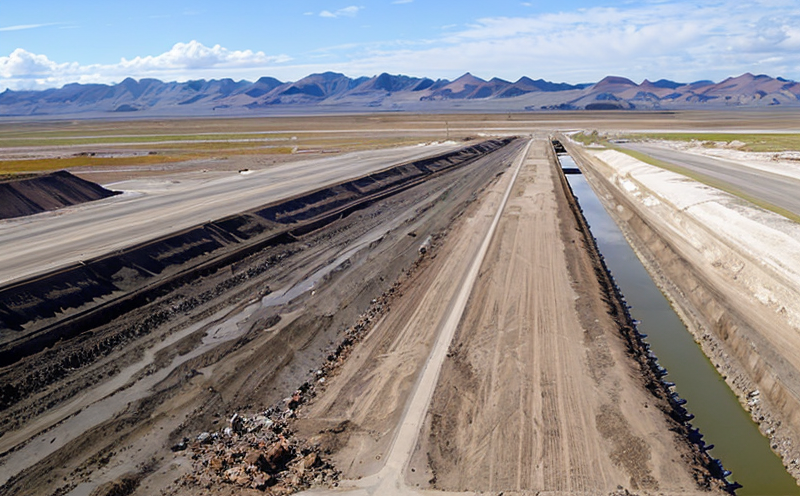ASTM D854 Specific Gravity of Tailings Soils Testing
The specific gravity of tailings soils is a critical parameter that influences numerous aspects of mining operations, particularly in the context of waste management and environmental compliance. ASTM D854 provides a standardized method for determining the specific gravity of particulate matter, which is essential for assessing the physical properties of tailings materials.
Tailings are byproducts from mineral processing and often contain valuable minerals along with residual chemicals and particles. The specific gravity testing helps in understanding the density and composition of these tailings, thereby aiding in waste management strategies such as landfill design, leachate generation prediction, and reclamation planning.
Specific gravity is a measure of relative density that indicates how much denser a material is compared to water at 4°C (39°F). This test is crucial for quality assurance in mining operations, ensuring that the tailings meet regulatory standards and do not pose environmental risks. The ASTM D854 method uses a pycnometer to measure the volume of a sample and calculate its specific gravity.
Properly conducted, this test ensures accurate data that can inform decisions on waste treatment, storage, and disposal methods. It also supports compliance with international standards such as ISO 17836:2019 for soil testing and EN 12457:2017 for tailings management.
The process involves several critical steps:
- Sampling of the tailings to ensure a representative sample
- Precise preparation of the sample in accordance with ASTM D854 requirements
- Use of calibrated equipment such as pycnometers and balances
- Standardized drying procedures to remove moisture
- Data analysis and reporting that adheres to ASTM standards
The results provide a clear picture of the tailings composition, which is vital for environmental impact assessments. For instance, higher specific gravity values may indicate a greater risk of leaching or settling issues, requiring additional control measures.
Understanding these parameters helps in developing effective management strategies that balance economic efficiency with environmental sustainability. This testing ensures that mining operations are compliant with local and international regulations, thereby reducing the ecological footprint associated with tailings disposal.
Benefits
- Accurate assessment of tailings composition for better waste management strategies
- Enhanced compliance with international standards such as ASTM D854 and ISO 17836:2019
- Precise data aiding in environmental impact assessments
- Supports the development of effective reclamation plans
- Aids in predicting leachate generation, minimizing environmental risks
- Ensures consistency in quality control across different mining operations
- Facilitates regulatory compliance to avoid legal penalties and reputational damage
Eurolab Advantages
EuroLab specializes in providing comprehensive testing solutions for the mining sector, ensuring that our clients meet stringent quality standards. Our team of experts is well-versed in ASTM D854 and can offer tailored testing services to suit your specific needs.
- State-of-the-art equipment calibrated according to international standards
- Experienced technicians with deep domain knowledge in mining materials
- Comprehensive quality assurance processes ensuring accurate results
- Proactive communication throughout the testing process, providing real-time updates
- Flexible service options, accommodating diverse client requirements
- Dedicated support to help clients navigate regulatory compliance challenges
We pride ourselves on delivering reliable and actionable data that can be used to make informed decisions. Our commitment to excellence ensures that you receive the highest quality testing services.





